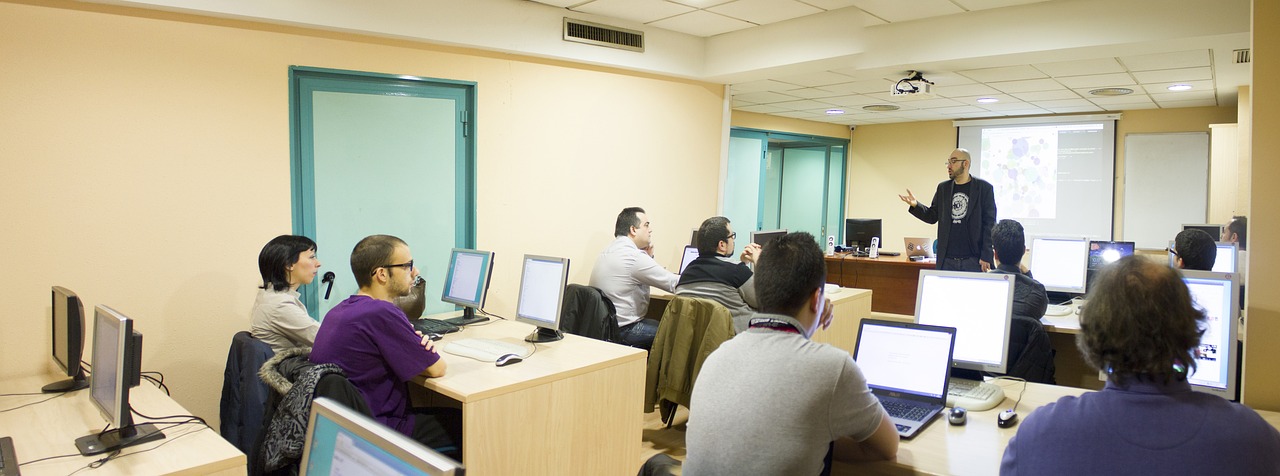
Work placements
How to better engage economics students in work placements
Read a summary using the INOMICS AI tool
Employability is a key concern for students, educators and employers in the UK. Indeed, many students want to see employability playing a bigger role in their courses. One way in which universities can foster graduate employability is through work-based learning (WBL) programmes, such as work placements.
A typical work placement can be embedded within a degree programme either as an additional year (typically, the third year of a four-year course), or as a module within a year of study, where students get practical training and work experience in an organisation (e.g. a consultancy firm or a government institution).
Work placement experiences can be crucial experiences for economics graduates. Even though economics degrees equip students with many skills that are desirable by employers – like data analysis and problem-solving skills – a shortage of certain skills and wider technological challenges have still been observed among graduates. In this article, we discuss why and how to encourage economics students to participate in work placement programmes.
Work placements help students develop transferable skills
There is a broad spectrum of benefits associated with the ‘real-world’ experience that students gain through placements. By being immersed in a professional environment, students develop valuable transferable skills across different broad areas, like communication, taking initiative, planning and organisation, and professionalism.
Further, students develop and enhance subject-specific skills and knowledge during placements. For instance, they gain data analysis skills by working on ‘real’ data, using them to produce charts and statistics, and critically analysing them.
Industry knowledge is important not only in economics-oriented sectors like consultancy or banking, but also in those that require expertise from other disciplines, like energy or telecommunications. The industry knowledge that economics students acquire during their placements in these sectors can offer a strong advantage for certain careers and graduate schemes, like the graduate development programme at Ofgem, Britain’s independent energy regulator.

Image credit: Pixabay.
Another notable benefit of work placements, perhaps one of the most important, is that students tend to gain confidence in their skills. This includes improving their understanding of their skills, how academic knowledge from their studies is applied to real world settings, and confidence in articulating those skills.
For example, at university, students usually learn econometric methods and use economic modelling in the first and second year of their studies. These skills can then be applied in research-oriented roles, like those offered by the Bank of England or consultancy companies that carry out forecasting and risk analysis.
What’s more, the placement year offers students the opportunity to apply economic theories to real-life situations in different sectors. For instance, students might use core economic concepts to understand international markets and the economic performance of a country and draw insights from macroeconomic indicators, such as inflation and economic growth.
Other benefits of work placements
Networking is another important benefit of placements. Students meet and interact with new and different people, including peers from other universities, colleagues and managers.
Students not only gain knowledge and experience from their placement work, but they also create contacts with line managers and other employees, who can share their insights into careers and support students’ applications for future job openings. Further, placements can be a useful way for employers to identify graduate talent.
There are potential monetary benefits of placements too. Most economics placements are paid, typically offering annual salaries of around £20,000, but there are occasions that these may exceed £30,000 and even reach £40,000 (for more details see Arsenis and Flores, 2020). Furthermore, graduates can reap monetary benefits by securing graduate jobs with their placement employers.
These earnings can alleviate students’ debt or help them to save. Obviously, such earnings need to be considered in conjunction with the costs associated with the work placement (including the reduced tuition fee for the placement year, and the delayed entry to the graduate labour market), which vary depending on individual circumstances.
Overall, economics placements can be an important first step in career progression. They provide students with the opportunity to trial the world of work, gain valuable skills, and discover potential career pathways. Our recent study shows that graduates who have undertaken a placement are more likely to find graduate jobs that are aligned with their careers than those who did not have such an experience.
Engaging economics students
Students often need to be aware of placement opportunities early in their degree, or even before they begin their studies, as these opportunities are often competitive. Students’ first-year performance matters for securing a placement, while prior school performance, particularly in economics and maths, does not seem to matter.
This creates the additional spillover effect that students are incentivised to engage more with the first year of their undergraduate studies. In UK universities, this year often does not count towards their final degree classification, even though it provides key, foundational training that is built on throughout their degree.
Universities and economics departments can improve student engagement in different ways. First-year induction sessions could cover basic features of the available placement programmes and highlight their benefits as well as challenges (for example, the time-consuming process of applying for jobs while attending classes and sitting assessments).
Career fairs and employability sessions could also be organised during the year to further motivate students and show them ways to improve their employability. In addition to the general employability sessions that careers services typically offer to students (including careers information and advice on skills development), economics departments can provide a more tailored learning experience that addresses economics graduates’ career paths and aspirations. To this end, inviting alumni to share their ‘success’ stories and advice with the current cohort is a great way to raise students’ interest in improving their own employability.
Economics graduates tend to be employed in a wide spectrum of job roles; thus, it is important that invited alumni reflect that diversity. For example, economics graduates working in technology, media, and pharmaceutical companies can be invited along with graduates that have followed more traditional pathways, like banking and wealth management. Covering both private and public sector opportunities is important too. Indeed, there are lots of public sector roles available for economics graduates, such as those in the Treasury or the Government Economic Service.
Crucially, students would need a dedicated point of contact - staff who can advise and direct them to the appropriate resources and services. Ideally, this person should be economics staff with a relevant role, like an employability or placement director, who also regularly liaises with the university’s employability and careers service to organise and advertise relevant events and resources.

Image credit: Pixabay.
Academic support for placement success
Academic support can be crucial for students’ success in securing placements. One type of support is the role of placement tutor. Placement tutors typically visit students on placement (or meet them online), keep track of their progress, advise them on tasks they need to perform to complete the placement year, and assess students’ performance on related assessments. The placement tutor also fosters links between the university and employer, and keeps track of skills that are necessary in the graduate labour market.
That part of the placement tutor’s role is important as it can also help to shape curricula. These days, a diverse set of skills is expected of economics graduates, including knowledge of data analysis and visualisation, coding, even machine learning. By creating syllabi and assessments that help students develop these skills, not only are students better prepared for the graduate labour market, but they also have better chances of securing a placement (and eventually a job) too.
Academic support is a crucial element of work placement degrees, where a supportive learning environment can be enhanced by the contribution of placement tutors. Indeed, there is evidence suggesting that student access to academic support throughout the placement is an important aspect of the design of such programmes. The placement tutor can also contribute to a smooth transition from university to the graduate labour market.
Challenges
While adopting these approaches may go a long way towards engaging students with placements, it may not always be enough.
Nowadays, a rising number of students in higher education come from different socio-economic backgrounds and face different challenges. But unfortunately, it is noteworthy that the economics discipline performs particularly poorly in terms of inclusivity. For example, it has a remarkably low share of students from low socio-economic backgrounds and from neighbourhoods with low participation in higher education (relative to the average student).
Economics educators should be concerned about these challenges, as university degrees have arguably become increasingly necessary to be competitive in the labour market. It is crucial to first acknowledge these challenges, and to take appropriate action. Acknowledging the issue suggests that economics departments should not present the option of placements as the only path to developing employability while studying.
Instead, alternative pathways should be promoted, like paid internships, which require less time to complete and usually take place outside of term times. But importantly, they still offer some of the benefits of work placements, such as creating new professional contacts and gaining insights into careers.
Another way to encourage employability is by designing a curriculum that explicitly addresses it; for instance, by introducing modules or changing existing ones to involve opportunities for self-reflection on skills that students developed while working on assignments.
Taking appropriate action involves supporting students who may want to go on placement but face financial constraints. For example, bursaries can be offered to students who come from low-participation neighbourhoods or low-income families. Clear widening participation criteria should be set and advertised to promote inclusivity, and to encourage students from different backgrounds to apply for placements.
Summary
In this article, we have set out the benefits of work placements and showed ways to engage students with them. Economics departments should be actively involved in this process and tailor their information to economics students. Economics educators should also be aware of the challenges that many students face and adjust their engagement strategies and support accordingly.
-
- Postdoc Job
- Posted 2 weeks ago
Research Assistant (Postdoctoral Fellow) (f/m/d)
At University of Bremen in Bremen, Germany
-
- PhD Program, Program, Postgraduate Scholarship
- Posted 1 week ago
PhD Program in Economics - 6 Fully Funded Scholarships
at Luiss Guido Carli University of Rome in Rome, Italy
-
- Conference
- Posted 1 week ago
Macroeconomic Policy in a Heterogeneous and Imperfectly Rational World - 6th Joint NBP-LB-CEBRA Biennial Conference
Between 24 Sep and 25 Sep in Warsaw, Poland













